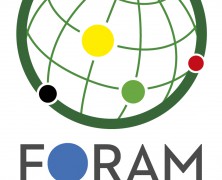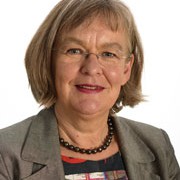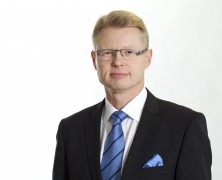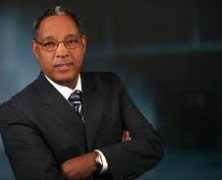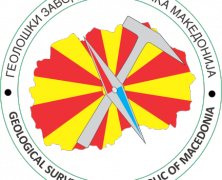The new FORAM NEWSLETTER is out! Find out more about FORAM, its objectives and the way it will make a difference. IN THIS SECOND EDITION… Interview with Dr. Karen Hanghoj Interview with Prof. Victoire de Margerie Interview with Harikrishnan Tulsidas FORAM project global mapping and analysis of raw materials initiatives The FORAM project at the World Resources Forum (WRF) Enhancing dialogues among FORAM stakeholders Download the 2nd FORAM...
Interviews on the new EGS book, “Wonder Water – The value of water”
posted by EuroGeoSurveys
The latest EuroGeoSurveys publication “Wonder Water – the Value of Water” has been launched on the 15th March 2016 at 16.00 o’clock, at the Scotland House of Brussels, during the EuroGeoSurveys 40th General Meeting. The book brings you on a fantastic geological journey around Europe through mineral springs, thermal baths, SPAs, pools, etc. It lets you explore fantastic places and discover the health benefits of groundwater on which geology has a mayor impact. The launch event was attended by the Directors of the Geological Surveys of Europe, EU representatives and invited guests from America, Asia and Africa. Below you will find the interviews with Mr. Koen Verbruggen (President the EuroGeoSurveys) and Mr. Zdenek Venera (Director of the Czech Geological Survey). For more details on the event, please read the press release. ...
The nuclear waste management in Sweden – Interview with Ms Lena Söderberg, Director General of SGU
posted by EuroGeoSurveys
Following up Finland recent pioneering project for building a deep storage of nuclear waste, how is Sweden current position on this topic and which are the implications for SGU? Responsibility in Sweden for taking care of the nuclear waste from the Swedish nuclear plants lies with the Swedish Nuclear Fuel and Waste Management Co (SKB). Site investigations have been carried out at two different locations along the South-East coast of Sweden, at Forsmark, c. 120 km North of Stockholm, and at Oskarshamn, c. 230 km South of Stockholm, with the objective of siting an underground repository for spent nuclear fuel. The current position in Sweden is that on the 16th of March 2011 SKB submitted a licence application to the Swedish Radiation Safety Authority (SSM) for the construction of a spent nuclear fuel repository at Forsmark and an encapsulation plant at Oskarshamn. The regulatory review of SKB’s licence application is ongoing, and the formal findings are planned to be submitted by SSM to the Swedish Government in 2017. The Swedish government takes the ultimate decision on whether or not to allow these final disposal facilities to be constructed, but not before the municipalities concerned have given their approval. A review is also undertaken by the Land and Environment Court based on the Environmental Code. Expertise at SGU has been involved in the geological investigations of both sites and also the site descriptive geological modelling work, primarily concerning bedrock geology and unconsolidated deposits. The site descriptive modelling also included the geological, palaeoclimate and historical evolution, as well as future development of the landscape at both sites. However, it should be noted that geological expertise at SGU has not been involved in SKB´s site selection process, but only in the development of an understanding of the...
The nuclear waste repository in Finland – Interview with Mr Mika Nykänen, Director General of GTK
posted by EuroGeoSurveys
Finland recently approved the construction of a nuclear waste repository within its territory, after more than 30 years of investigations. The construction license was granted on 12 November 2015. Construction work can be started at Olkiluoto at the end of 2016. The disposal facility is expected to be ready for operation in 2023. Why is Finland the first country in the world to start operating a spent nuclear fuel disposal facility? First of all, we are fortunate to have ancient crystalline bedrock suitable for geological waste disposal. Seismic activity is low, there is no volcanic activity and the bedrock properties related, for example, to groundwater flow are favourable. In the past, GTK has carried out nationwide geological, geochemical and geophysical mapping, so the records provided a good starting point for evaluating the suitability of the bedrock and for site selection investigations. It was easy to find numerous candidate sites meeting the requirements of international standards. Nevertheless, a lot of complementary studies specific for nuclear waste disposal were required, and that’s what we have been doing during the past decades. Another key element is long-term planning. After the Finnish bedrock was shown to be suitable for nuclear waste disposal, the Finnish Government already made a decision-in-principle in 1983, which defined the objectives and schedule for nuclear waste management. Thus, together with the Nuclear Energy Act, the responsibilities of the various parties (industry, regulators, government) were clearly defined. The funding of the Nuclear Waste Management Fund was also organized. Without political acceptance and general transparency, nuclear waste programmes cannot proceed. Now that the construction license has been granted, will GTK maintain its research activities linked to the spent nuclear fuel disposal facility at Olkiluoto? Definitely, yes. Nuclear waste disposal is moving from site characterization to the...
Supporting Earth Sciences development in Africa: Interview with Mr Mogessie, Fellow of the African Academy of Sciences
posted by EuroGeoSurveys
Mr Mogessie, you have recently been elected Fellow of the African Academy of Sciences, representing one of the highest excellences of the continent in the Earth Sciences. In light of this prestigious role, how would you envisage the development of Earth Sciences disciplines in Africa? Yes, I am elected Fellow of the African Academy of Sciences (AAS) recently, and since May 2015, I had the honor to be elected Fellow of the Geological Society of America (GSA), receive a Certificate of Recognition from the Society of Economic Geologists (SEG) for 25 years of distinguished service, and also elected as Associate Fellow of the Ethiopian Academy of Sciences (EAS). This is a great honor for me and a recognition of my service to the earth sciences development in research and education in Africa, which I have been promoting as elected President of the Geological Society of Africa since 2008. In light of my role, I envisage the development of Earth Sciences disciplines in Africa as encouraging. As you may know Africa is a big continent with an area of over 30 million Km2 and a population of ca. 1.1 Billion at the moment, increasing at an alarming rate and expected to reach 3 billion by the year 2100. We should therefore see the development of the Earth Sciences and other sectors from this perspective. During the last decade Africa has made progress in many fields among which there is the Earth Sciences. The coming August and early September 2016, we will organize the 35th International Geological Congress at the Cape Town Convention Center, where we expect more than 5000 earth scientists from all over the world to gather and discuss about their research results in the different fields of Earth Sciences. Among the topics of...
Interview with Mr Kostadin Jovanov, Director of the Geological Survey of Macedonia
posted by EuroGeoSurveys
Could you describe the main activities of the Geological Survey of Macedonia and its public role in FYROM? The Geological Survey of the Republic of Macedonia is an expert, independent, administrative organization, established for doing basic geological research of public interest in the Republic of Macedonia. Most of our activities are focused mainly on the development of geological research related in particular to the preparation of basic geological, hydrogeological, engineering-geology, geochemical and seismotectonic maps and other geological maps, making them available to the public . All the work that we carry out is done on the basis of – and following the – priorities of the Republic of Macedonia We are very active also in the determination of the legal regularity of concentration and distribution of natural mineral resources in the Earth’s crust. In particular, we take part in the preparation of the Strategy for geological research, use and sustainable exploitation of minerals. Moreover our geological knowledge is essential for physical planning, construction, water supply, agriculture, forestry, urbanization and construction of infrastructure facilities, helping policy makers to make the best choices for the development of our country. We really believe in the exchange of geological information and experiences with international geological institutions in order to prepare and develop common research projects and to unify synergies for the implementation of the International Geological Information System, a single Geological Information System, able to provide information and data to the users of geological research results. We are also developing a Programme for basic geological research of the area of the Republic of Macedonia for the Government of the Republic of Macedonia The basic geological research is developed through an Annual Programme, which is adopted by the Government of the Republic of Macedonia upon advice of the Geological...

